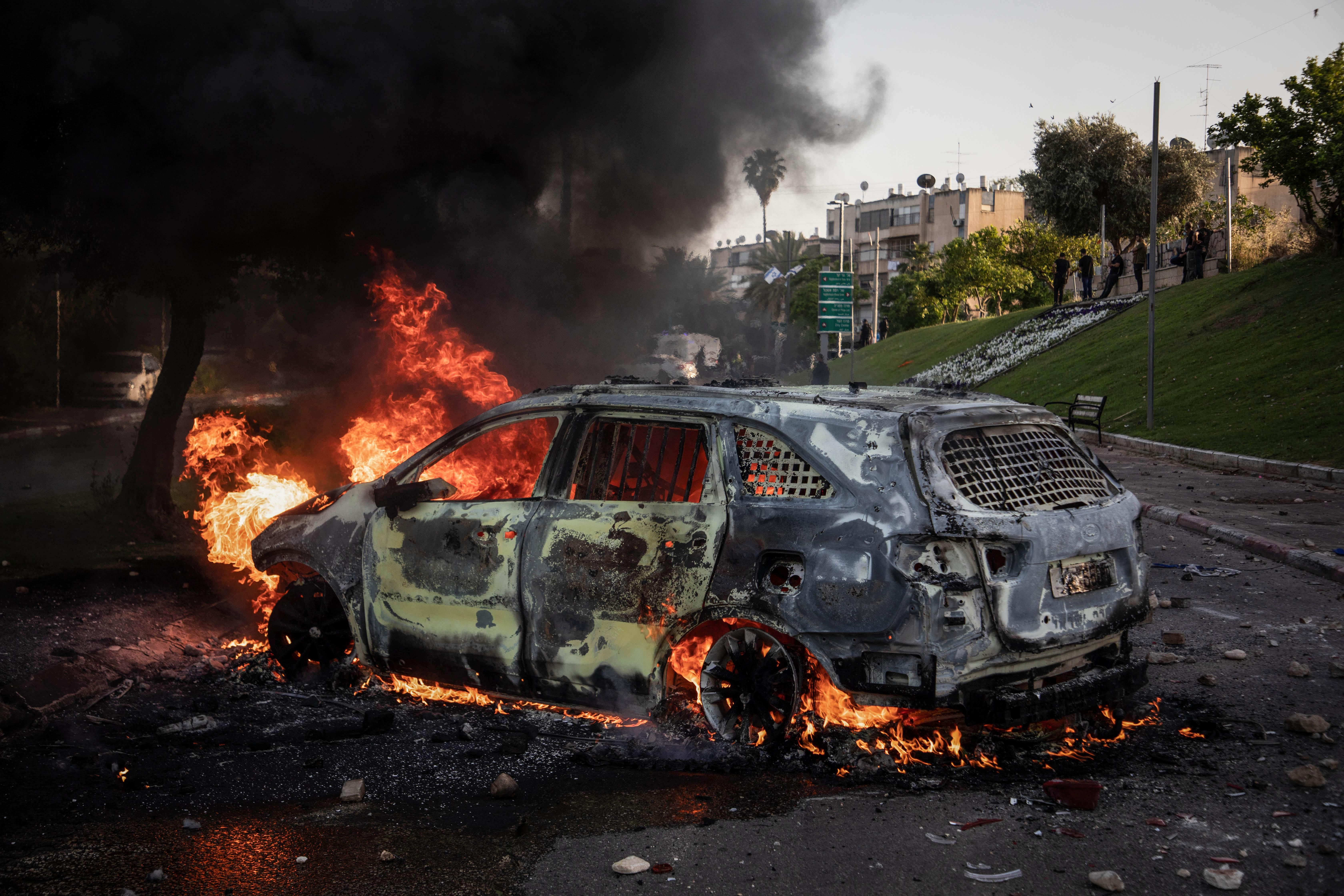Integrated Israeli cities on the brink: Another bloody day in Israel and the Gaza Strip: Israeli forces continued to bomb Gaza Wednesday, killing several Hamas commanders. At least 56 Gazans have now been killed in Israeli strikes, including 14 children. Meanwhile, rockets continue to fall inside Israeli cities, causing millions to flee to bomb shelters. The Israeli death count now stands at eight. The more startling development for intelligence analysts, however, has been the increasingly violent clashes between Arabs and Jews in integrated Israeli cities following weeks of confrontations in Jerusalem: an Arab man was pulled from his car and attacked by Jewish vigilantes in a suburb outside Tel Aviv, while Arab Israelis have burnt synagogues and attacked Jewish Israelis. Integrated cities like Lod, Acre and Haifa are often highlighted as models for broader Palestinian-Israeli peace, but as Haaretz reporter Anshel Pfeffer points out, these unprecedented clashes show that Israel's security apparatus failed to understand that Palestinians in Israel, Gaza, East Jerusalem, and the West Bank are still motivated "to rise up and show solidarity with each other." International actors are reportedly trying to get the two sides to agree to an imminent ceasefire. Will it work?
Nepal's COVID crisis: In the shadow of India and its catastrophic COVID emergency, Nepal now faces a COVID crisis of its own. The country's 1,100-mile, mostly open border with India is likely a primary route of contagion. A quarter of Nepal's 29 million people already live below the poverty line, and emergency services are poor. In particular, a shortage of medical oxygen, as we've seen in India and elsewhere, has sharply boosted the death toll across the country, and some patients are refused admittance because there aren't enough ICU beds to accommodate them. China has begun emergency shipments of oxygen canisters and ventilators, but relief organizations have also called on hikers in the Himalayas and local tour companies to return used canisters for refilling.
Uganda's split-screen politics: Ugandan President Yoweri Museveni, an ex-rebel in office since 1986, was
inaugurated on Wednesday for his sixth term in office. While that was taking place, police surrounded the home of opposition leader Bobi Wine, who claims Museveni fraudulently defeated him in the
January election. The split-screen moment reflects the political zeitgeist in Uganda, deeply divided between supporters of Museveni — an aging strongman whom older, mostly rural Ugandans give credit for bringing economic growth through stability — and Wine, a
popstar-turned-politician adored by young urban Ugandans. Wine believes the country demands
generational change, and he and his supporters have been targeted by the armed forces that are loyal to Museveni. Still, Museveni has an ace up his sleeve: Uganda's expected
oil boom means that the president will soon have a lot of cash to spend on social programs for the poor, and Western countries will tolerate his human rights abuses to get a taste of the black gold. As long as the military
continues to back Museveni, Wine's odds of taking over remain slim.
